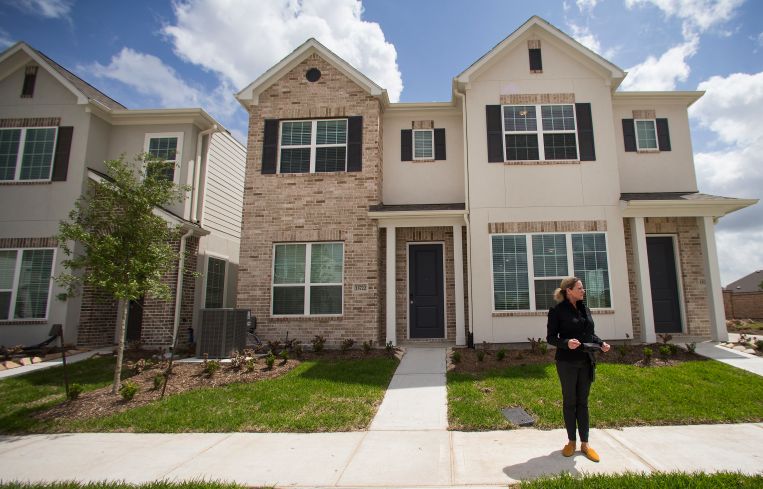Single-Family Rentals Are Bigger Than Ever. So Are the Fraud Challenges.
By Michael Lucarelli September 3, 2025 8:00 am
reprints
The single-family rental (SFR) sector has grown into a major force in housing, now representing a substantial share of the rental market after years of steady expansion. Institutional investors are pouring capital into purpose-built communities and large portfolios, attracted by strong demand and competitive returns.
Yet, the market is still overwhelmingly dominated by mom-and-pop landlords, who own the majority of properties nationwide. This mix of large-scale operators and small landlords creates unique challenges, particularly in tenant screening and fraud prevention.
Institutional owners like Invitation Homes and Progress Residential manage tens of thousands of properties and deploy advanced screening technologies to manage risk at scale. Those owning more than 100 homes control roughly 3.8 percent of all single-family properties nationally, with higher concentrations in Sun Belt metros. Meanwhile, more than 80 percent of SFR properties remain in the hands of small-scale landlords with one or two units, many relying on traditional screening methods and local market knowledge.

Still, fraud has become a critical issue across the sector. A staggering 93.3 percent of landlords have encountered fraudulent tenant documents, with 84 percent reporting falsified income or employment information, according to a National Multifamily Housing Council Pulse Survey.
The average financial loss is between $1,000 and $5,000 per fraudulent tenant. Analytics firm Snappt found that 6.4 percent of rental applications in 2024 were fraudulent, highlighting the scale of the problem despite a slight decline from prior years. Property managers report similar concerns with 70 percent having seen application fraud increase, yet only 16 percent feeling completely confident in verifying documentation, according to AppFolio’s 2025 benchmark report.
Fraud risk is also rising outside the application process. Fake listings, which are often posted on platforms like Facebook, have surged, contributing to a 45 percent increase in rental scam complaints to federal regulators and the Better Business Bureau over the past two years. Among fraud victims, 70 percent paid a security deposit before realizing they’d been scammed, 50 percent paid the first month’s rent, and more than 60 percent lost over $500. Nearly half lost $1,000 or more, and 8 percent lost more than $5,000.
To combat these threats, landlords are increasingly adopting advanced screening tools with ID verification, document authentication and real-time income validation. Platforms like SmartMove and TransUnion’s ResidentScore have demonstrated improved accuracy in predicting evictions, while layering identity checks, fraud detection, and public record searches have become standard best practice. Institutional owners can protect large portfolios efficiently with AI-powered fraud detection and real-time verification systems. Smaller landlords, however, often lack access to, or are unaware of, these resources, leaving them more vulnerable.
The consequences of fraud extend beyond direct financial losses. They can disrupt leasing cycles, prolong vacancies, erode net operating income, and trigger costly, complex evictions.
Balancing rigorous screening with fairness is equally important. Overly strict criteria can exclude qualified renters, especially those with limited credit histories. The Urban Institute estimates that incorporating alternative data, such as utility and telecom payment histories, could expand housing access to more than 45 million “credit invisible” Americans without increasing default risk.
The future stability of the SFR market depends not only on capital flows but also on a sector-wide commitment to effective tenant screening and fraud prevention. By investing in the right tools and fostering collaboration between large and small operators, landlords can protect assets, improve tenant quality and build long-term trust, benefiting property owners and renters alike.
Michael Lucarelli is the CEO and co-founder of RentSpree.



